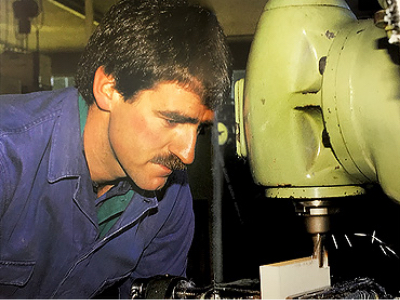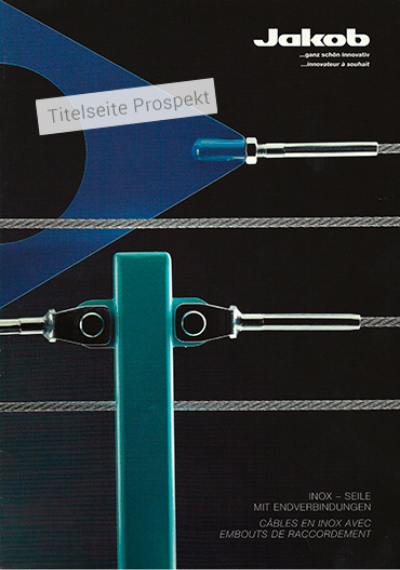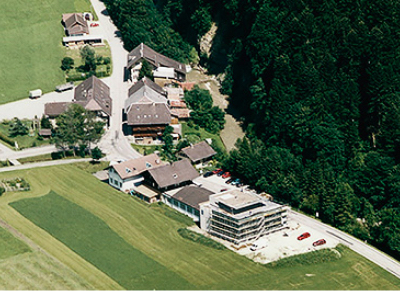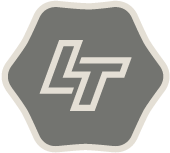LT anniversary blog
Bruno Lehmann: passionate businessman for a new era

When Bruno Lehmann joined his father’s business in 1978, he was only 22 years old. He had just completed pilot school in the army and had not yet begun his training at the technical college in Biel. At this time, his father was potentially still toying around with the idea of Bruno becoming a pilot – one of his own dreams – but it quickly became clear to Bruno that he did not want to dedicate his life to aviation. However, it would be about another 10 years before Bruno found his true calling in the business world.
A solid family foundation
In his private life, Bruno found happiness early on. While out in Bern one day, he met and fell in love with Rita Sonderegger from the canton of Thurgau. In 1979, their first son, Simon, was born, followed by another son in 1981, a daughter in 1984 and a second daughter in 1990. Rita Lehmann supported her husband, raising the children while Bruno was busy shaping the future of the company that would be known as Bruno Lehmann AG from 1980 onwards. By this time, the company had five employees. Daily business was rather calm at this time: the working day lasted nine hours, there was just one telephone that rang once or twice a day and stress was an unknown concept. The cash ledger of his father reveals what Bruno was earning at the time: CHF 2,800.00 per month. A modest salary, but enough to secure a worry-free foundation for Bruno and his family. These were good years, with new father Bruno also serving as a pilot in the military for two months per year.

From Bucher sales rep to Bucher competition
Salesmen for Bucher were not allowed to represent any other brands. Hans had always followed this rule, but things changed at the end of the 1970s. The self-propelled trailer was revolutionizing the market, but Bucher’s new product had massive quality problems, which caused Lehmann considerable worry: the transmission was too weak and constantly broke down. However, this was not the case for the models offered by Reform-Werke Wels, an Austrian manufacturer of specialized vehicles. Their Muli (German for “mule”) line had been a success story for a decade: a four-wheel-drive transport vehicle that, unlike the Bucher model, reliably served its customers and more than lived up to its name. Bruno did not hesitate long before making his decision. Upon joining the company in 1978, he saw to it that Lehmann also became a representative for Reform Muli. Bucher was not pleased with this news and immediately stopped delivering replacement parts to Lehmann. Yes, it’s true – companies played (and continue to play) hardball when it comes to fighting for dominance in the agricultural machinery and replacement parts market. However, Bruno’s small company felt that they were in the right. After a legal confrontation, manufacturing giant Bucher was forced to end its boycott.
Business booms thanks to contract production
Sales activity was flourishing, but this was not Bruno’s true passion. A skilled mechanic, he developed a packaging machine to package the signature truffles of Beeler, a Bern-based confectioner, and focused his energies on strengthening the relationship with Jakob, also a family-run company. Bruno’s business acumen placed him at the right place at the right time. Jakob became the global market leader for wire rope production thanks to the success of its Inox product line. As former classmates, Jakob and Lehmann enjoyed a close relationship. In 1987 and 1988, Lehmann enjoyed major success with the production of end pieces for Jakob’s wire ropes. In 1993, Bruno acquired the first CNC machine, which was an important turning point for the company. From 1993 to 2003, the company enjoyed golden years with its manufacturing business. Soon Lehmann employed 50 staff members, and Bruno invested CHF 1 million in the company each year.

New headquarters pave the way for digitalization
In 1983, Bruno rebuilt the company headquarters, separating the agricultural machinery and manufacturing divisions. Additional construction work was carried out in 1993, 2001 and 2007.
The company’s large, computer-operated manufacturing equipment needed space. Digitalization was bringing changes to the village of Trub. Bruno’s son Simon would later bring the company even further into the digital world by opening the LT online shop.
Four pillars of success: knowledge, skills, fairness and family
Just as his father had done, Bruno handed over the reins to his son Simon after 34 years in business. At the age of 56, Bruno left the business world and placed the destiny of the family company in the hands of the next generation.
Technical achievements combined with a straightforward approach were Bruno’s core values (and in this regard, the apple did not fall far from the tree). His success in business motivated him to achieve great things, but he did not allow himself to get eaten up by material gain. There have been great challenges for the company and its new leadership over the last decade, namely the (understandable) decision of long-time business partner Jakob to strengthen their market position by setting up their own production facility in Vietnam.
<< back to the overview

